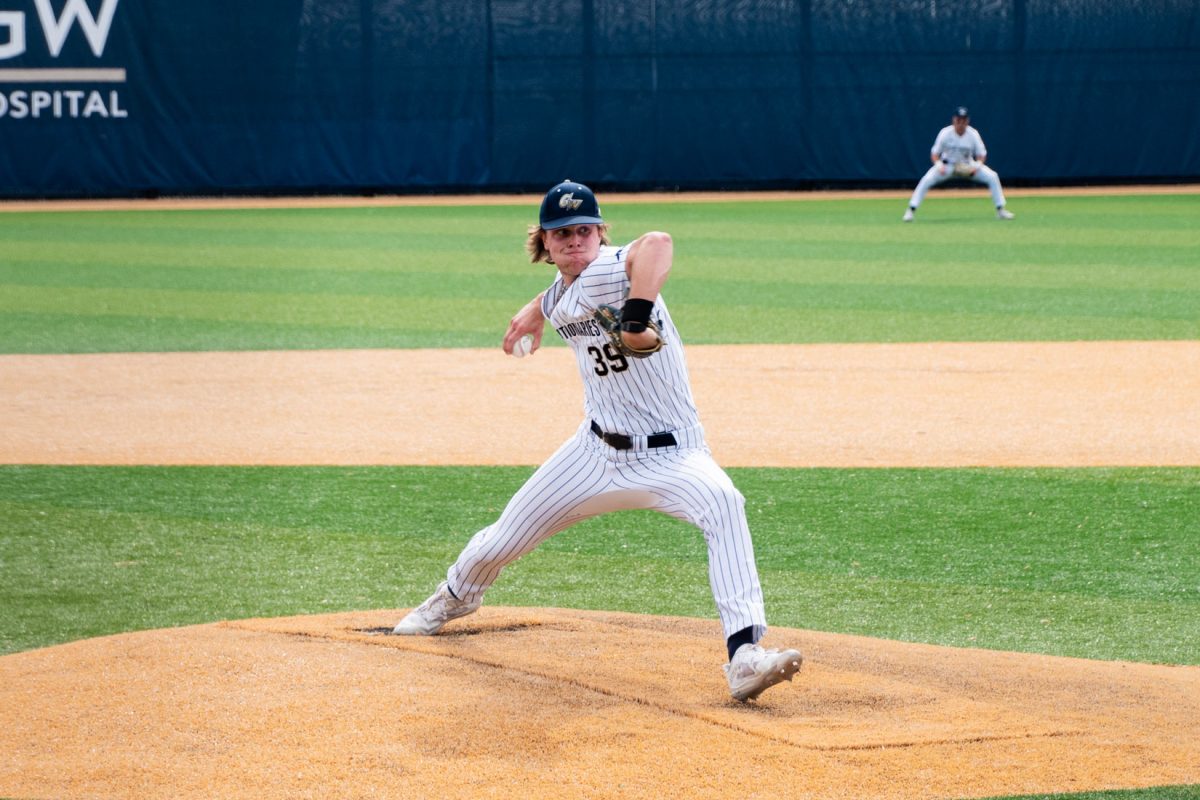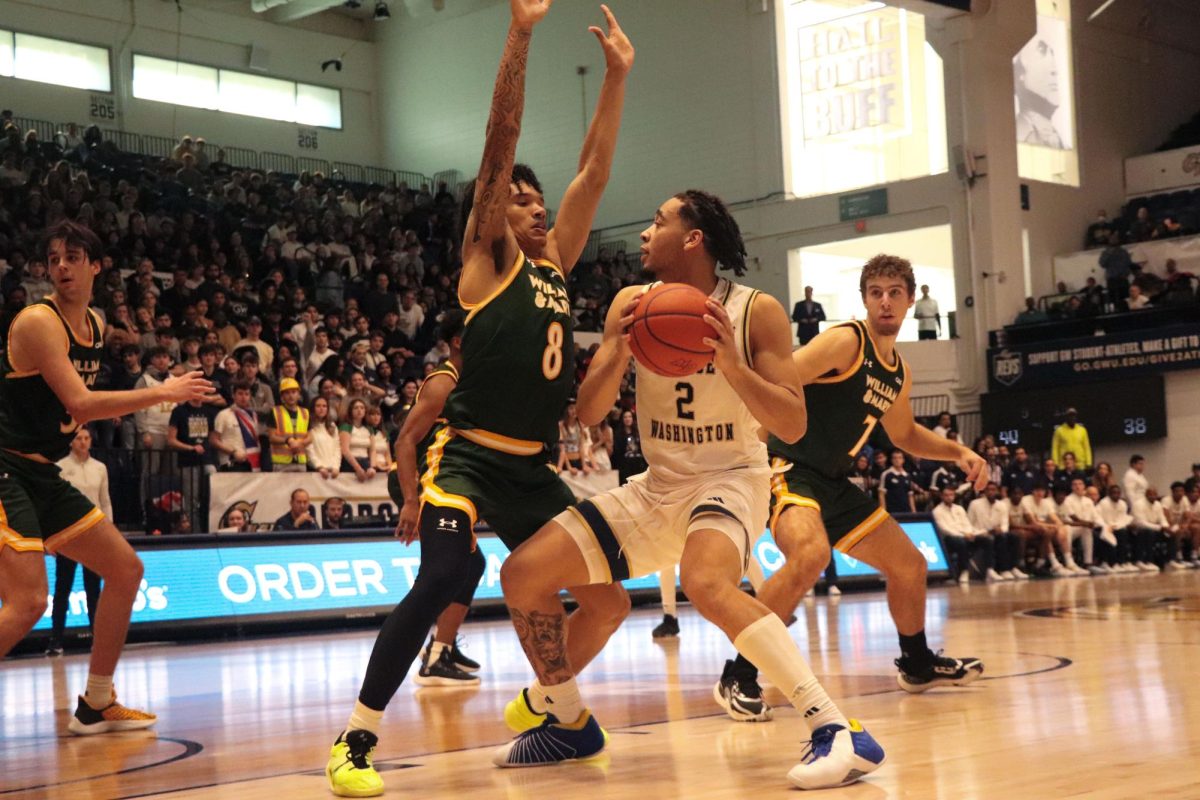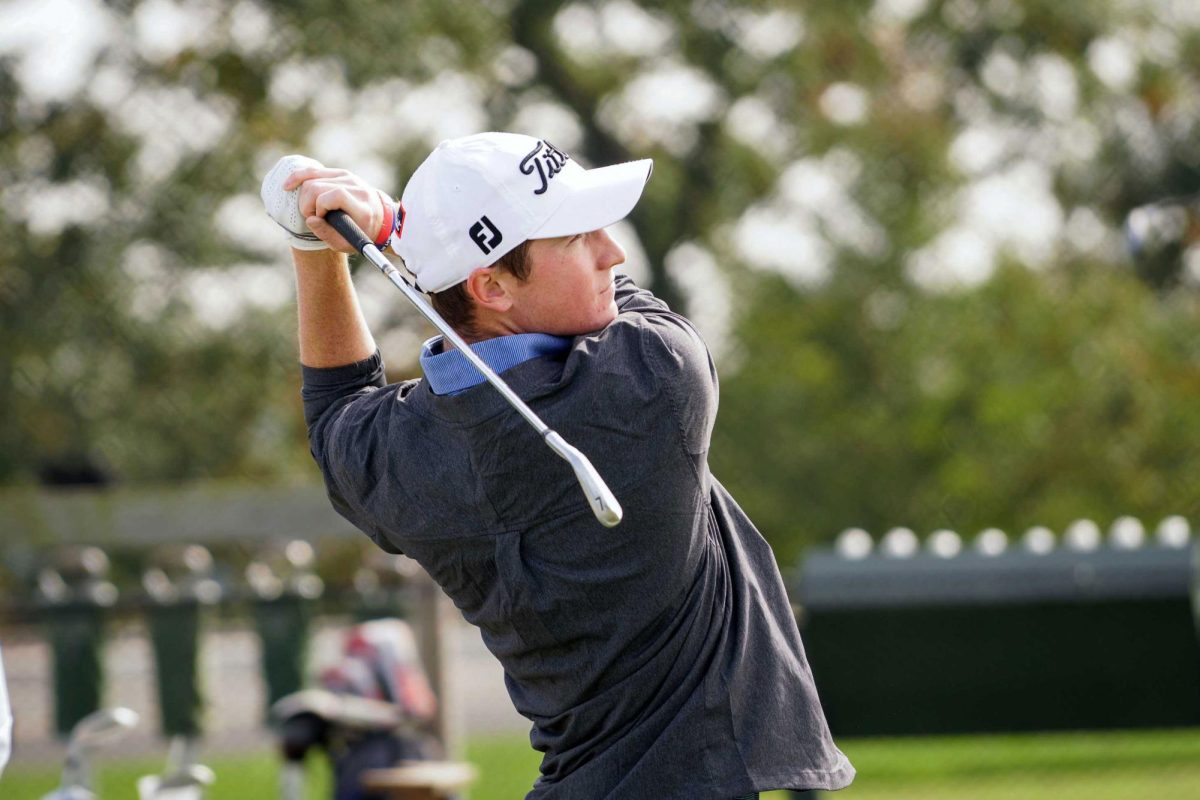On television, in newspapers and here at GW, the middle of April has become a perennial tribute to Jackie Robinson. Each year we celebrate courage, strength and the influential dynamic of a black man playing major league baseball in 1947.
In the 56 years since Robinson’s debut, the four major sports have seen a huge influx of black athletes, as well as Europeans, Asians and South Americans. The number of ethnicities, religions and races in the American sports scene could compete with any international organization. And yet with all the progress that’s been made, major professional sports still won’t accept one type of athlete – the open homosexual.
Comparing race and sexuality can be difficult because one can be seen while the other is often hidden. But despite this difference, the premise of discrimination is still the same. If you’re an openly gay athlete, you will not be accepted in any locker room on any team. This much has been repeated over the last calendar year.
“If I knew there was a gay guy on my college football team,” Giants tight end Jeremy Shockey told Howard Stern in September, “I probably wouldn’t, you know, stand for it.”
A few months later, a Fresno Bee columnist asked 49ers running back Garrison Hearst if he would be comfortable with a gay teammate. His response? “Aww, hell no! I don’t want any faggots on my team.”
These views, which should pierce the heart of any compassionate person, are relatively common in the macho world of major sports. When rumors swirled that Mike Piazza was homosexual, you would have thought he had been accused of raping his mother. He was so alarmed that he quickly held a press conference to deny the rumors and assert his preference for women. Piazza must have been scared of how his teammates would react, and after hearing comments like those above, it’s hard to blame him.
In all these instances, the media interviewed former and current athletes and all of them said the same thing. If they were gay, they sure as hell wouldn’t come out. And rather than be appalled, everyone seems to accept this principle – you can’t be openly gay in professional sports and that’s the way it will always be.
There have been two professional athletes in our four major sports who have admitted their homosexuality: Esera Tuaolo, a nine-year veteran of the NFL, and Billy Bean, a seven-year veteran of Major League Baseball. But both went public after they retired and both were just average journeymen. What homosexual athletes really need is another Jackie Robinson.
They need someone who is like Robinson both in star quality and character. Someone so crucial to winning that no sane team would let him go, and someone courageous enough to stand tall in the face of small-minded prejudice. To be honest, I hoped the Piazza rumors were true just so he could become that player.
Still, the perfect candidate is certainly out there. Numbers alone dictate that there are closet homosexuals playing professional sports and one of those men must be a star. If that player would step forward, the slow process of acceptance could begin.
That process for blacks is usually triumphed in the famous story of Pee Wee Reese putting his arm around Robinson in Cincinnati’s Crosley Field. But an even better story occurred before the 1947 season began.
As Roger Kahn wrote in “The Boys of Summer,” several Brooklyn Dodgers passed a petition around saying they wouldn’t play with a black man. But when it got to Reese, the team captain refused to sign and the petition died. Eventually, the team accepted Robinson, which was the first and most important step.
I am confident that if a gay player took the role of Robinson today, there would be a heterosexual player on his team to take the role of Reese. And slowly, change would occur.
I don’t mean to suggest that this gay athlete would have quite the transcendental impact of Jackie Robinson. American mainstream society accepts homosexuals in 2003 much more than mainstream society accepted blacks in 1947. But even on this liberal campus with a relatively large gay population, I still hear the word “fag” and know people who are homophobic.
Though not quite on Robinson’s level, the emergence of a gay star athlete in major professional sports would resonate through society. So many of the moronic macho guys who say “fag” also maintain their machismo by following sports. Just as rooting for a black man in 1947 opened so many bigoted eyes, rooting for a gay man in 2003 could help erode the intolerant views of so many young people today.
For athletes, of course, there is also the large issue of comfort in the locker room as players dress and shower. But the assumptions a straight athlete might have are foolish and easily disposable.
If a professional athlete comes out of the closet and survives for just a little while, others would follow. And eventually gay athletes in college and high school could be open about their homosexuality, too.
Only then would other athletes realize that these gay men have been in their locker room for years and they don’t watch everyone undress or stare at guys in the shower. Just as whites found out that Robinson was no different, straight athletes would find out that a gay man can be one of the guys, too.







